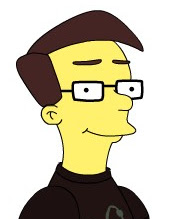"When a person is praying sincerely from their heart, they need to be able to pray sincerely to God," [Council member Jocelyn] Johnson said. "As far as I'm concerned, even if we have to have a court tell us we have to stop, I think we should continue. I think it's my right to pray - without offending anyone."Obviously Ms. Johnson is correct inasmuch as her right to pray is concerned. However, her right to pray does not extend to a right to force others to listen to her prayer, nor does it extend to the right to have the state fund a venue for those prayers. It's also troubling to hear an elected official advocate violating the law; a law she has ostensibly taken an oath to uphold.
Another council member, Gloria Whisenhunt, remarked:
"I don't see us banning prayer, and I don't see us asking ministers to change the way they pray. I don't think we're bothering anyone, quite frankly,"Setting aside for a moment that "bothering anyone" isn't the issue in matters of constitutionality, it was Winston residents that contacted the NC-ACLU about this situation, so obviously someone is being bothered. What Ms. Whisenhunt likely meant was "I don't think we're bothering anyone who matters." The disdain for the feelings and opinions of people with whom she disagrees, not to mention their civil rights, is clearly evident.
That disdain, not to mention ignorance of the law, is evident in another statement in the article, this time by Yadkin County commissioner D. C. Swaim:
"I have a problem with a minority of people in this country determining these things for the majority," he said. "This argument has been going on for 200 years, and I don't suppose it's going to end anytime soon."Mr. Swaim is apparently unaware that the principles underlying our Constitution have nothing whatever to do with "majority rule". The Constitution explicitly protects the fundamental rights of all U.S. Citizens, even against the tyranny of the majority.
Okay, that was November, 2006. Fast-forward to February, 2007. The council has so far failed to take any action and now I learn (from an email action alert) that Americans United for the Separation of Church & State has sent an additional letter to the Forsyth City Council also requesting that they cease this illegal and discriminatory practice. Given what was in the alert, it's possible that the NC-CLU and AU will take the matter to court if the council fails to take action.
As far as I'm concerned, I think the idea of a prayer or invocation to open any kind of public meeting is an utter waste of time; time that could be much better spent discussing the issues with which our representatives were elected to deal. We don't pay our councilmen/women, commissioners, representatives, and senators to spend their time exhorting assistance from the supernatural nor should we be overly keen on electing men & women who believe themselves incapable of solving the very real problems facing our society without Jesus (or Thor, or Zeus, or Siva, etc) whispering in their ear.
That said, however, I don't see anything in the Constitution that could be read as positively prohibiting such practices. Although James Madison famously spoke against Congressional Chaplains, the idea of prayers or invocations at the opening of public meetings isn't definitively banned by the First Amendment. I think that prayers are acceptable as long as the body makes every effort to be as inclusive as possible and allows the floor to be open to anyone who wishes to deliver an invocation, regardless of faith or lack thereof. In practice, however, invocations are given by invited guests with the invitations going almost invariably to Christian ministers. Whether or not that's actually the case here remains to be seen.




No comments:
Post a Comment